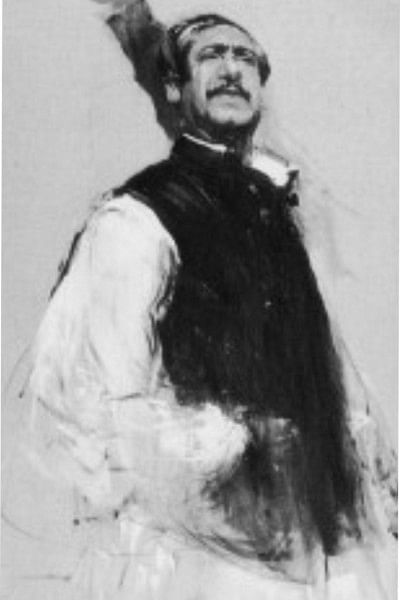Remembering August 15, 1975

Darkness settled in seemingly with a promise to facilitate a peaceful slumber for the city dwellers after a hot day's tiring work. There was nothing uncanny in the bearing of the night, except that it was completely oblivious of what Cassius and a few villains were conspiring to execute under cover of the night's darkness. These villains committed the gravest ever crime that people will always remember with hatred and acute ache in their hearts. An indelible smear desecrated the otherwise laudable history of Bangladesh. The serenity of the night was shattered by the boot-steps of the shadows of uniformed personnel, climbing up the stairs in our building in Sukrabad, just a few minutes' walk from Sheikh Mujib's residence, across Mirpur Road. I gathered the courage to crane my neck through one of the open windows, only to be rebuffed by a soldier, growling at me, to be quiet and to get back to sleep. Tension bristled across the room, and anxiety paled the faces of other members of my family. Muffled whispers ensued, and in spite of me being extremely worried, I had to pacify others inside the room, by saying that it was nothing important. I advised them to retire to their respective beds, but kept my ears alert for sensing any untoward noise. Before long, war noises started to pound our hearts, which drove me to the end of my wits. It took a few moments before I could regain my composure. Immediately everyone in the house was asked to prostrate on the floor to avoid any bullet hitting us. Sporadic reports of the guns and tanks kept the anxiety mounting in every mind, and a refreshing sleep was denied. We were still in the dark about what was happening in Sheikh Mujib's residence, on the other side of the road. People in the houses around were all awake but none dared to go out to find out what was happening. The tiring, sleepless night was finally over and the remorseful morning dawned to expose the unthinkable crime that had been committed in the sanctified land of Bangladesh. As the armed shadows, guarding on the rooftop, vanished into nothing, curiosity overtook me. I just cantered along the alley to reach an under-construction building. Reaching the top floor offered me an uninterrupted view along Mirpur Road from beyond Kalabagan to Asadgate. Completely deserted, the road was burning in the scorching heat of the sun. A car was left abandoned near Sobhanbag mosque, with four of its doors flung open and two human hands drooping on one side of the car, which gave me to understand that a dead body was lying inside. The tanks and artillery were placed somewhere on Manik Mia Avenue. Every few minutes an army jeep chased shadows along the road to apprehend the fugitive who, they might have thought, could appear from nowhere to resist their crime. As I gathered later, guns and tanks were stationed in some strategic places to deter people from coming together to protest the dubious activities of the uniformed people. The streets remained deserted and Dhaka University, which was waiting to welcome the undisputed leader of Bangladesh to its convocation, was made off limits for the public by the heavy armed vehicles of the defense forces. People remained indoors, extremely anxious to hear what had happened in the darkness of the night. Speculations and rumours were a murderous presence in every nook and cranny. Nothing was authentic, and an unbearable uncertainly pervaded every mind. It was close to nine in the morning when the perpetrators made their sinister act known to the public through a radio announcement, sending thousands across the country into shedding tears hysterically. The heartbreaking news was initially rejected by many as a kind of concoction of some ill-motivated uniformed personnel, but soon the truth dawned on all that the great leader was no longer alive. My old mother wept profusely. I tried to console her, but between sobs she uttered, "Why do they have to kill him?" This incident occurred at a time when I was a first year student of Dhaka University. It affected me so much that the hatred that gathered in my mind has never ceased to curse the killers. The solemn prayer of my mother for the salvation of the great leader's soul still rings in my ears. My mother, although she did not understand much of politics, had a tremendous affection for Sheikh Mujib. Her prayers for the fallen hero will never go unrewarded. August 15, 1975 has taken our leader to his peaceful abode in heaven, it has also inscribed his name in letters of gold in millions of hearts which will never be erased. Now that this day of mourning has once more traversed its annual course, people need to be united to subdue the evil forces of darkness that caused this bloodbath. Those who are responsible for the crime and those who are the beneficiaries are to be brought to book. Our posterity needs to learn the truth about the killings. We must also tell our children how the anti-liberation forces, under the cover of religion, have been distorting the facts about our great leader, and poisoning their innocent minds with fabricated stories about him. It is for the sake of truth that Bangabandhu Sheikh Mujibur Rahman's unselfish devotion to the people and the country should be projected, with all honesty and sincerity. It is for the betterment of the nation that all perpetrators of the crime of his assassination be brought to face justice. Only then can we expect to develop a prosperous Bangladesh, free from all sorts of injustice.

 For all latest news, follow The Daily Star's Google News channel.
For all latest news, follow The Daily Star's Google News channel. 



Comments